
-
Find the right food for your petTake this quiz to see which food may be the best for your furry friend.Find the right food for your petTake this quiz to see which food may be the best for your furry friend.Health CategoryFeatured products
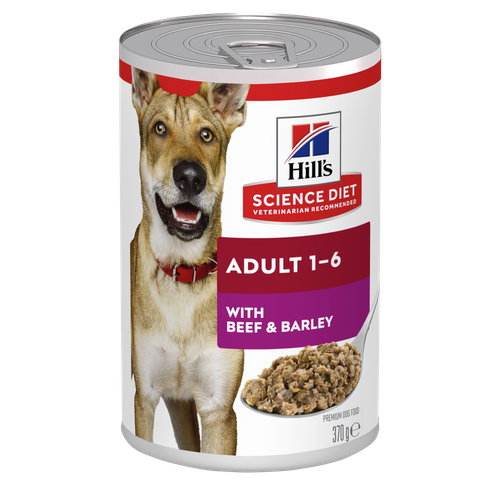 Adult with Beef & Barley Dog Food
Adult with Beef & Barley Dog FoodBeef & Barley recipe with precisely balanced nutrition to keep Adult dogs active and healthy
Shop Now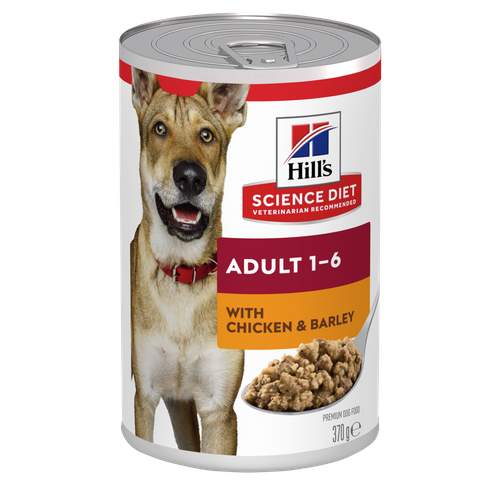 Adult with Chicken & Barley Wet Dog Food
Adult with Chicken & Barley Wet Dog FoodChicken & Barley recipe with precisely balanced nutrition to keep Adult dogs active and healthy
Shop Now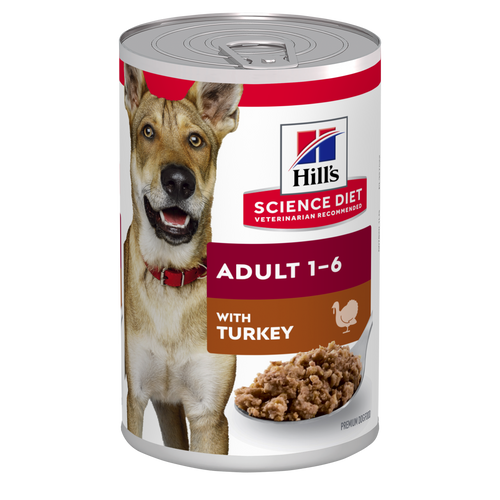 Adult with Turkey Wet Dog Food
Adult with Turkey Wet Dog FoodTurkey & Barley recipe with precisely balanced nutrition to keep Adult dogs active and healthy
Shop NowFeatured products Adult Chicken & Spinach Casserole Cat Food
Adult Chicken & Spinach Casserole Cat FoodWith delicious chunks in a decadent gravy
Shop Now Adult 7+ Tender Tuna Dinner Cat Food
Adult 7+ Tender Tuna Dinner Cat FoodWith delicious chunks in a decadent gravy
Shop Now Sensitive Stomach & Skin Chicken & Beef Dinner
Sensitive Stomach & Skin Chicken & Beef DinnerGourmet daily nutrition, carefully made. Tasty chunks with chicken & beef in a decadent gravy. Supports digestive health, nourishes skin and promotes a lustrous fur.
Shop Now -
DogCat
- Cat Tips & Articles
-
Health Category
- Weight
- Skin & Food Sensitivities
- Urinary
- Digestive
- Kidney
- Dental
- Serious Illness
-
Life Stage
- Kitten Nutrition
- Adult Nutrition
Featured articles Water
WaterWater is the most important nutrient of all and essential for life. Animals can lose almost all their fat and half their protein and still survive, but if they lose 15% of their water, it will mean death.
Read MoreHill's Australian Bushfire EffortsRead More Pet Food Storage Tips
Pet Food Storage TipsWhere you store your cat and dog food can make a big difference in the quality and freshness once it is opened. Here are some common questions and recommendations for optimal storage for all of Hill’s dry and canned cat and dog food.
Read More -


If your dog is slowing down, acting tired, or refusing to play like he used to, chances are he's not simply being lazy. Pets who act lethargic or show signs of exercise intolerance may have a serious underlying condition. In particular, this may be caused by a serious condition like heart disease. If your dog is acting lethargic or is simply less active than usual, it's important to pay attention to these cues. Keep reading to understand why your dog might be exercise-intolerant and what you should do about it.
Possible Causes of Lethargy
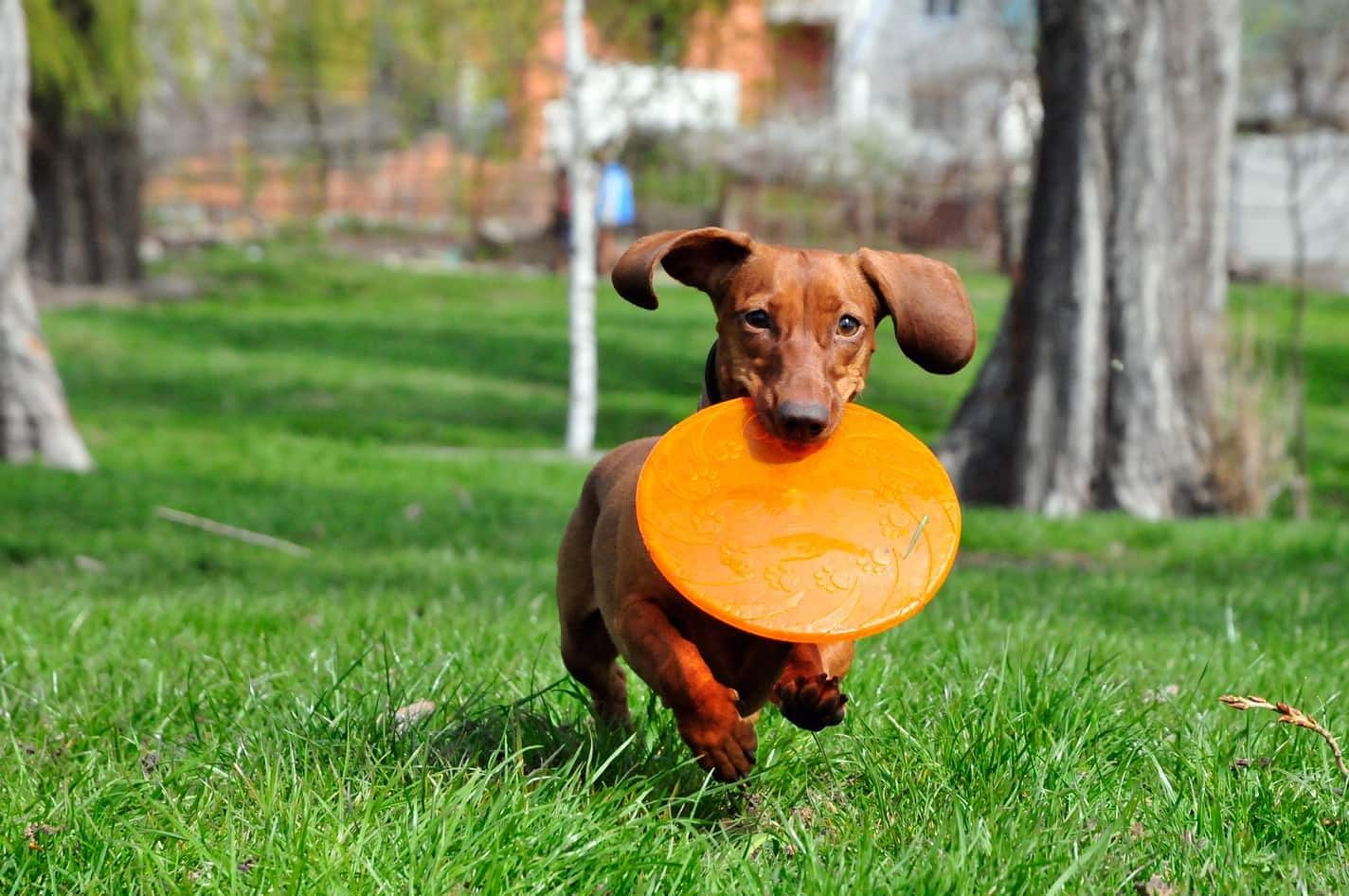 It's normal for some dogs to slow down a bit after heavy activity. For example, your dog may want to spend a day or two sleeping more than usual following a long day at the dog park or a rigorous hike. However, prolonged tiredness should not be ignored. Exercise intolerance is only one red flag for major issues like heart disease, but it could also signal a host of other problems, ranging from mild issues, such as muscle pain, to serious conditions like congestive heart failure. Vets Now lists several potential reasons why your dog is acting lethargic:
It's normal for some dogs to slow down a bit after heavy activity. For example, your dog may want to spend a day or two sleeping more than usual following a long day at the dog park or a rigorous hike. However, prolonged tiredness should not be ignored. Exercise intolerance is only one red flag for major issues like heart disease, but it could also signal a host of other problems, ranging from mild issues, such as muscle pain, to serious conditions like congestive heart failure. Vets Now lists several potential reasons why your dog is acting lethargic:
- Infection or illness, including parvovirus or kennel cough
- Heart problems
- Liver problems
- Diabetes or hypoglycemia
- Hypothyroidism
- Parasites
- Side effects of medication
- Poisoning or trauma
The walking service and dog advice site, Wag!, adds that exercise intolerance in combination with other symptoms—such as a lack of appetite, coughing, or fainting—could also be a sign of pulmonary hypertension (high blood pressure in the lungs) or other cardiovascular disease.
Signs of Exercise Intolerance and Lethargy in Dogs
It's usually fairly easy to tell if your dog is acting sluggish. Excessive sleep, low energy, lack of excitement, and delayed responses are all overt signs of a lethargic dog, says Vetinfo. Exercise intolerance can be harder to spot, especially if you don't walk or play with your dog regularly. In milder cases, says Wag!, your pooch may simply not want to walk as far or play as much as normal. Coughing, heavy panting, or labored breathing following physical activity might also signal exercise intolerance. Extreme cases might involve confusion, disorientation, a lapse in toilet training, a rise in body temperature, wobbliness, and even collapse.


Tasty Tips
What You Should Do to Help
If you notice that your dog is acting lethargic or isn't tolerating his usual levels of exercise, it's important not to force him to run. Follow his cues, and allow him to stop playing or cut his walk short if necessary. Keep a close eye on him, watching for other serious symptoms. If you notice any other worrisome behaviors, you should contact your veterinarian right away. If your dog doesn't show any other symptoms, wait a day or two. If your pup's energy doesn't improve or his condition worsens, contact your vet. That being said, if he shows extreme symptoms, such as fainting or collapse, get him to an emergency clinic immediately.
Diagnosing Your Dog
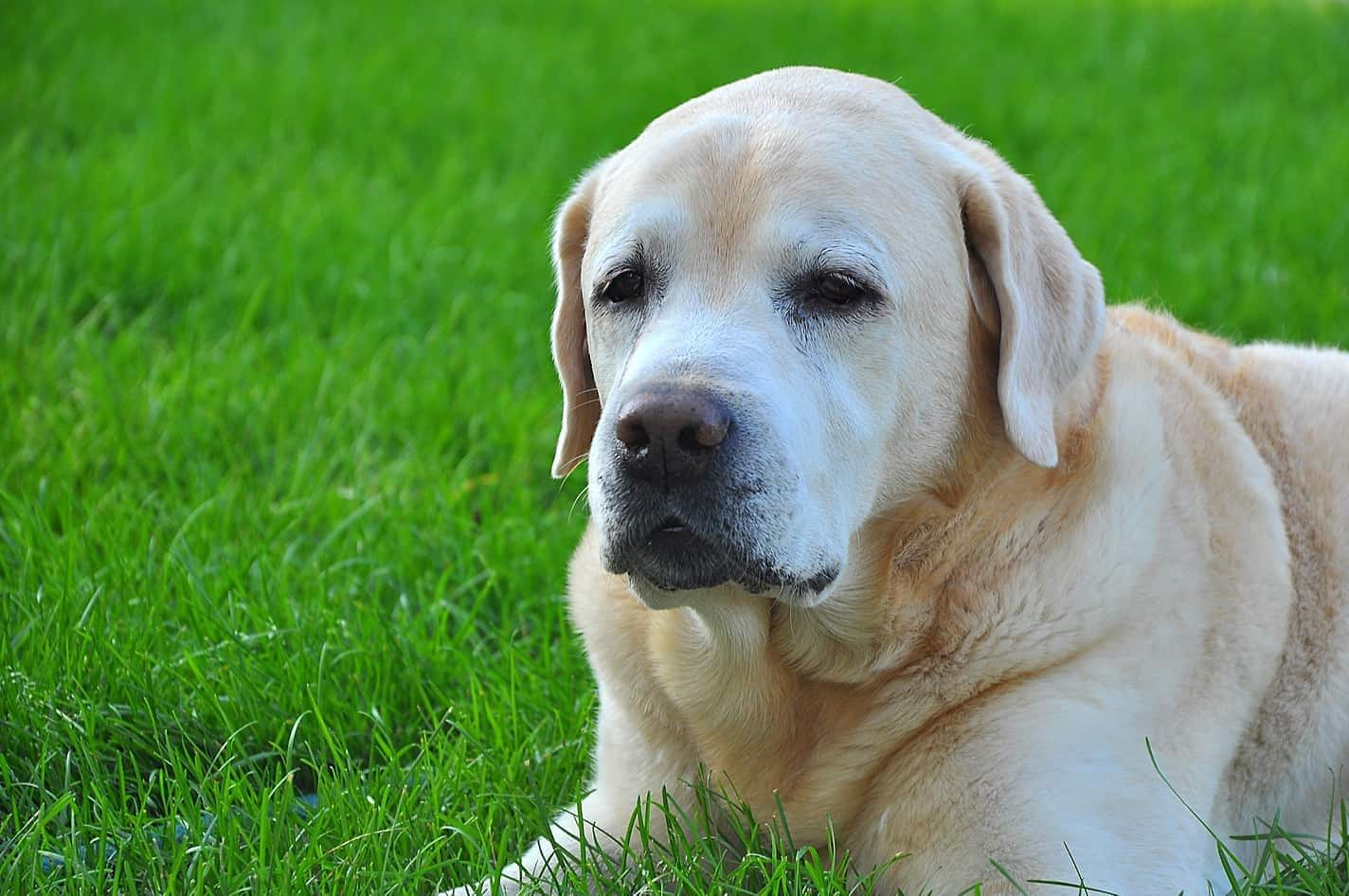 Once at the vet, your dog will be thoroughly examined. The vet will likely look for any signs of lameness, injury, or pain, as well as any possible tumors. He or she will also perform blood and urine tests to check for underlying health conditions. It's likely that your pup will also be hooked up to an electrocardiograph machine to check the electrical activity of his heart, and will be given chest x-rays to examine his heart and lungs. Your vet might also recommend an ultrasound, CT scan, or MRI to help diagnose your pup's condition. You can help achieve a proper diagnosis by providing your vet with a list of any medications your dog takes, talking over the details about his diet and lifestyle, and mentioning any other symptoms or changes you've noticed in your pup.
Once at the vet, your dog will be thoroughly examined. The vet will likely look for any signs of lameness, injury, or pain, as well as any possible tumors. He or she will also perform blood and urine tests to check for underlying health conditions. It's likely that your pup will also be hooked up to an electrocardiograph machine to check the electrical activity of his heart, and will be given chest x-rays to examine his heart and lungs. Your vet might also recommend an ultrasound, CT scan, or MRI to help diagnose your pup's condition. You can help achieve a proper diagnosis by providing your vet with a list of any medications your dog takes, talking over the details about his diet and lifestyle, and mentioning any other symptoms or changes you've noticed in your pup.
What to Do After Diagnosis
Lethargy and exercise intolerance are symptoms of a problem, not a condition by themselves. The type of care your dog needs will depend on the condition with which he's diagnosed. Depending on the vet's assessment, your pooch might recover and return to his former levels of activity. However, heart disease in dogs, as well as other progressive illnesses, may require changes in exercise and activity for the rest of his life. Talk to your vet about your pup's condition and how much physical activity he can safely handle.
Alternatives to Exercise
If your dog is restricted from vigorous activity and exercise, it can be a challenge to control his weight. Because excess weight can exacerbate some ailments, this is a challenge that must be addressed. Depending on your pup's diagnosis and treatment plan, your vet might place him on a special prescription meal plan that's appropriate to his condition. Otherwise, talk to your vet about placing him on weight control dog food that can help him keep off the "puppy fat" in the absence of exercise. Making sure your dog is eating an age-appropriate dog food can also help manage his weight. Proper nutrition is also vital. If your dog is not receiving the right nutrients he needs to keep his energy levels up, this could be a contributing factor to his lethargy. Be sure to talk to your vet about overall food recommendations even if he doesn't need a specific condition-based dog food.
Age Considerations
Of course, it's normal for dogs to slow down a bit as they get older. Joint problems, weight gain, and simply growing more tired with age are all factors that could cause an older dog to be less active. But older dogs are also more susceptible to the types of illnesses that cause lethargy and exercise intolerance; regardless of your dog's age, if he's noticeably more tired than usual, it's important not to chalk it up to just being a senior. These are potential red flags that should never be ignored.
A dog's activity level can be a strong indicator of his health. That's why as a pet parent, it's important to pay close attention to what's normal for your pooch so that you'll be able to recognize when he's not acting quite like himself. If you're not in the habit of routinely playing with or walking your dog, start now so that you'll be familiar with his normal level of activity. By acting quickly when your dog is acting lethargic, you could help catch a serious illness in its early stages and improve your pet's chances of continuing to live a healthy, happy life.


Jean Marie Bauhaus is a pet parent, pet blogger, and novelist from Tulsa, Oklahoma, where she usually writes under the supervision of a lapful of fur babies.
Related products

Clinically proven kibble technology to reduce plaque & tartar build-up, specially designed for small & mini dogs

Supports lean muscle for dogs who prefer smaller kibble

Supports energy level and beautiful coat in mature dogs who prefer smaller kibble

Supports healthy joints, lean muscle, and beautiful coat for large breed dogs
Related articles

Selecting the right food for your puppy is a key to quality nutrition and a long, healthy life., Learn more about how to select the right puppy food.

Learn how today's wet dog food blends have gotten a face lift, and how you'll provide your dog the nutrition he needs in the form he loves.
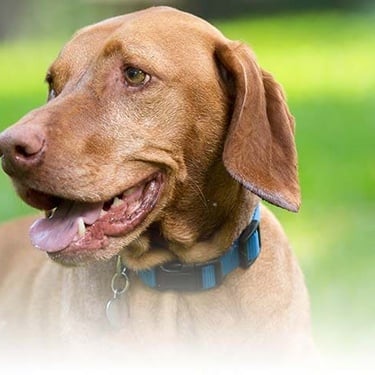
As small and toy breed dogs age, their nutritional needs change.

Extra pounds can cause problems for your dog's overall health. Learn the signs that your dog might be overweight, and what you can do to manage its weight.

Put your dog on a diet without them knowing
Our low calorie formula helps you control your dog's weight. It's packed with high-quality protein for building lean muscles, and made with purposeful ingredients for a flavorful, nutritious meal. Clinically proven antioxidants, Vitamin C+E, help promote a healthy immune system.
Put your dog on a diet without them knowing
Our low calorie formula helps you control your dog's weight. It's packed with high-quality protein for building lean muscles, and made with purposeful ingredients for a flavorful, nutritious meal. Clinically proven antioxidants, Vitamin C+E, help promote a healthy immune system.

